by Anne M. Yoder
The Mennonite Heritage Center (a Conference-Related Ministry, Harleysville, PA) hosted a program on Saturday, March 23 to celebrate Women’s History Month. Some registrants were kept away due to the torrential rains of that day, but a small and enthusiastic group did gather. The program was conceived by MHC’s Education Committee and part of its mission was to highlight archival collections that held the papers of women who were missionaries or involved in a medical profession. There are often glimpses in personal papers that can inform and inspire us today, and it was wonderful to find some at the MHC as well as other archives. The bulk of what was discovered was of Mennonite women active from 1894 to 1928.
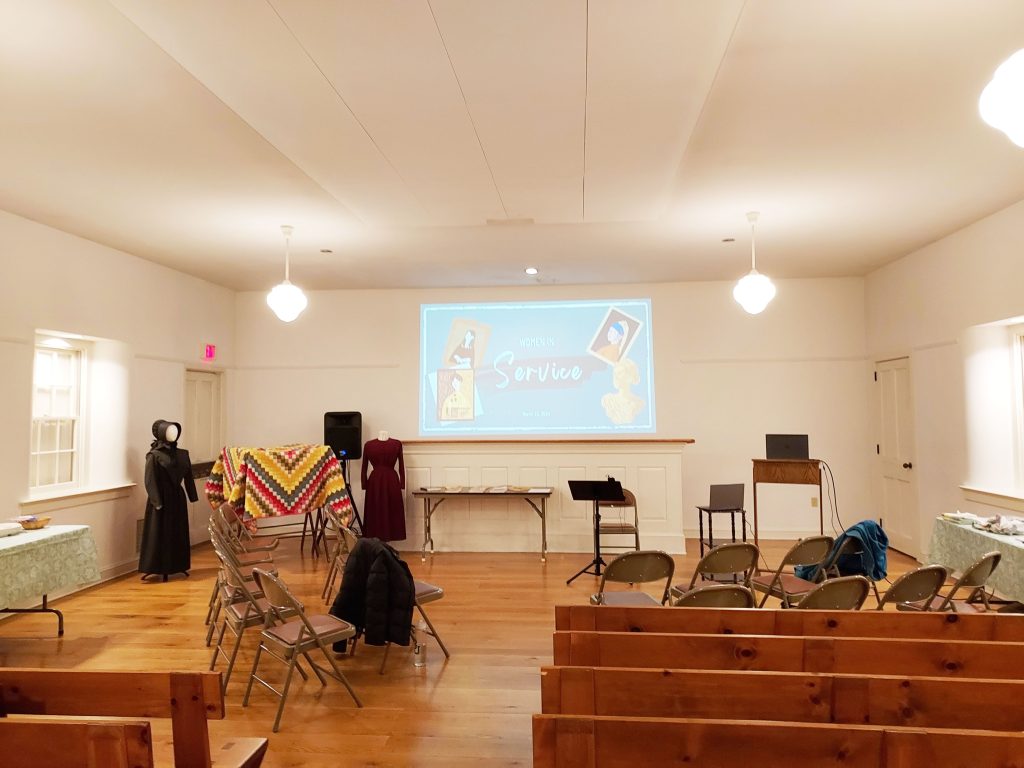
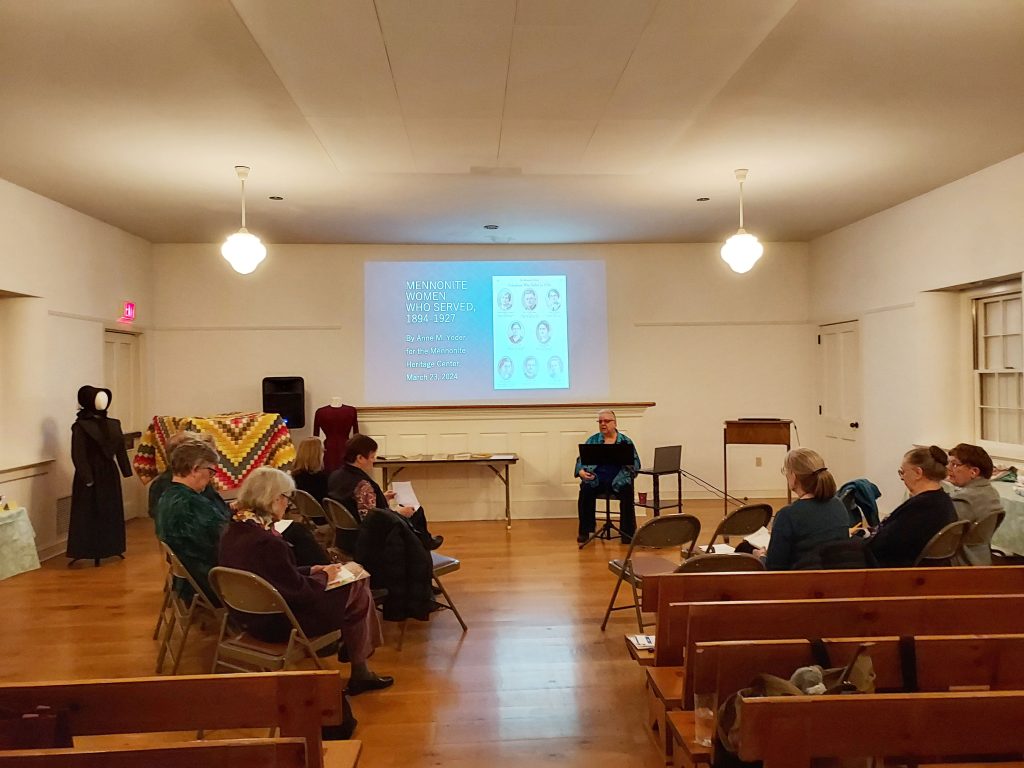
Regina Wenger, Educational Curator, in her spirited introduction, shared that this was a period of tremendous change for Christian women, including Mennonites. They began to organize their own societies and mission outreach networks, and single and married women became part of movements to bring about social change (for example, through the temperance crusade) and to share the Gospel. Their abilities and intellect shined in their increasingly public roles, and they gained authority in places where, for example, they were the only doctors in a large area of a country.
My presentation was about Mennonite women who left their home environments to work in missions in U.S. cities or overseas, particularly in India, or as army nurses in Europe during World War I. Their diaries and letters illuminated their sense of calling, the challenges they found when they arrived, how they were perceived by others they met or to whom they ministered, and reflections about God. A quote by Sara Shisler, a missionary in Nigeria, who wrote in 1927, moved us all: “These [Bura] girls are beautiful…One does not need to try to love them, one just does…. In educating them, we are not handing anything down, only sharing what we have. May our sharing be done in justice and love.” [Sara C. Shisler Collection (Hist. Mss. 1-214), Mennonite Heritage Center]
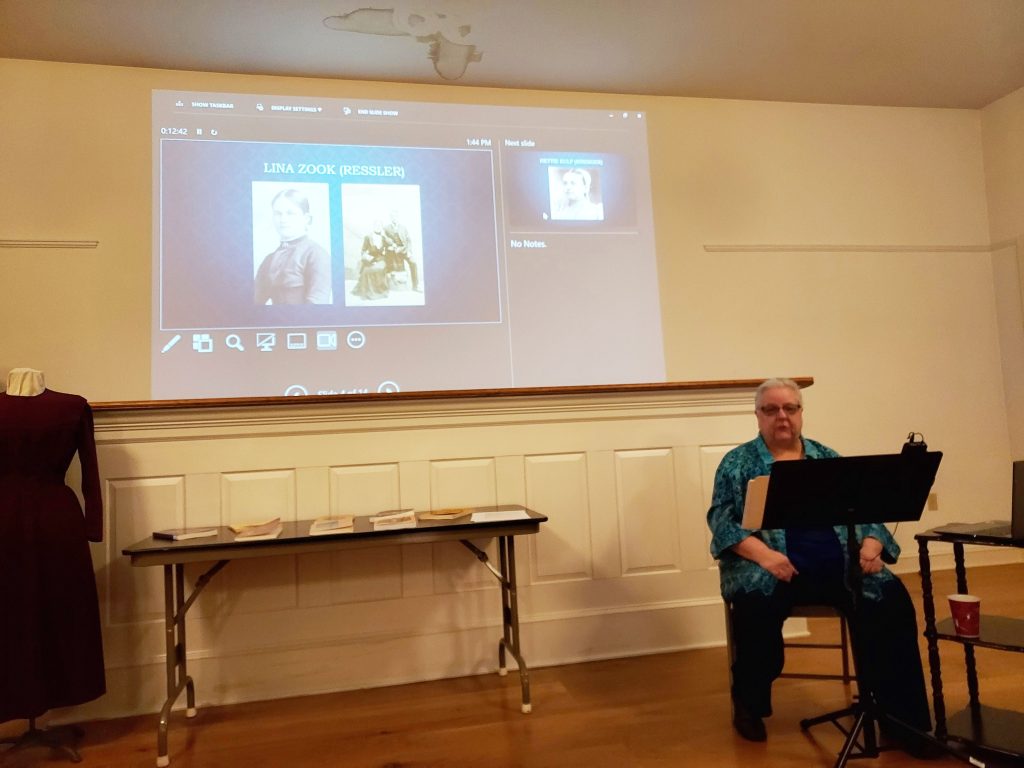
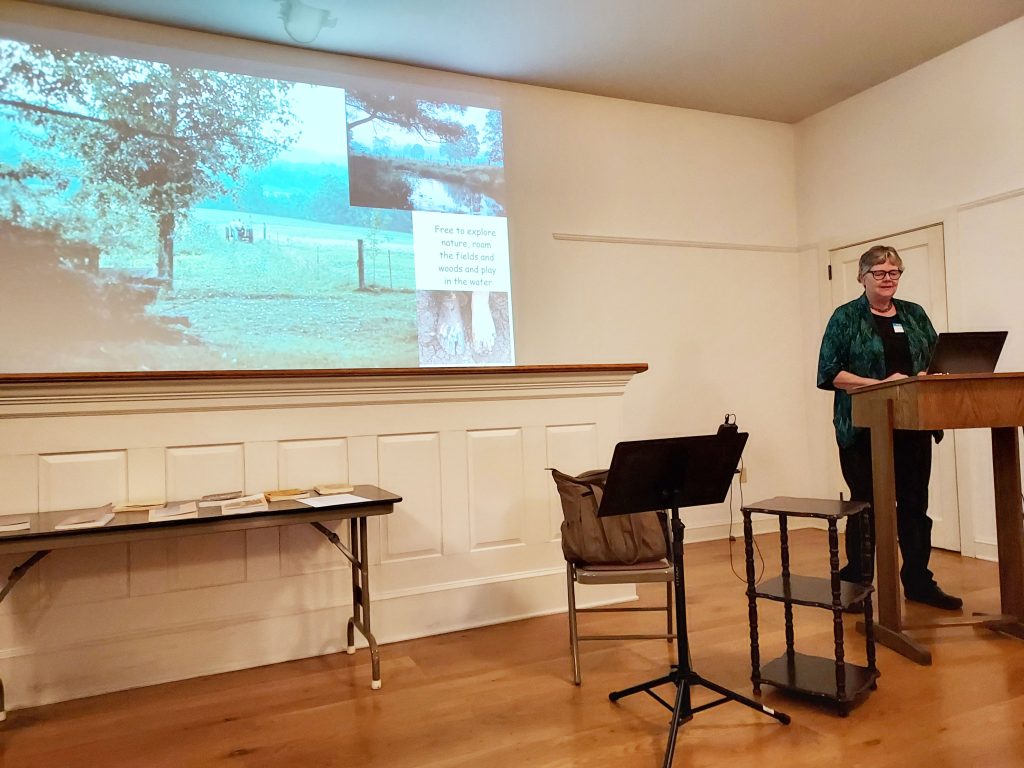
Carol Martin Johnson provided a modern-day counterpart to these historical women. She reflected on the messages she had received as a child about work and art and how that impacted her career. The admonishments heard and modeled for her were that creating beauty was alright if it served a useful purpose. After years of nursing as a profession in the U.S., and in Uganda with Mennonite Central Committee (MCC), she began to feel restless. She credits the Holy Spirit stirring in her that led her to become an art therapist. Helping others in a way that taps into her creativity has helped her to finally feel settled. The messages from her childhood have been transformed: now she knows that making art and beauty is not a luxury; it is essential to her wellbeing and way of existing in the world.
The program closed with comments and questions, a time of fellowship, and assembling MCC infant care kits from supplies brought by participants.
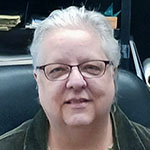
Anne M. Yoder
Anne M. Yoder served as the Archivist for the Swarthmore College Peace Collection, from which she recently retired. She is a member of West Philadelphia Mennonite Church and also attends Methacton Mennonite Church.
The opinions expressed in articles posted on Mosaic’s website are those of the author and may not reflect the official policy of Mosaic Conference. Mosaic is a large conference, crossing ethnicities, geographies, generations, theologies, and politics. Each person can only speak for themselves; no one can represent “the conference.” May God give us the grace to hear what the Spirit is speaking to us through people with whom we disagree and the humility and courage to love one another even when those disagreements can’t be bridged.
